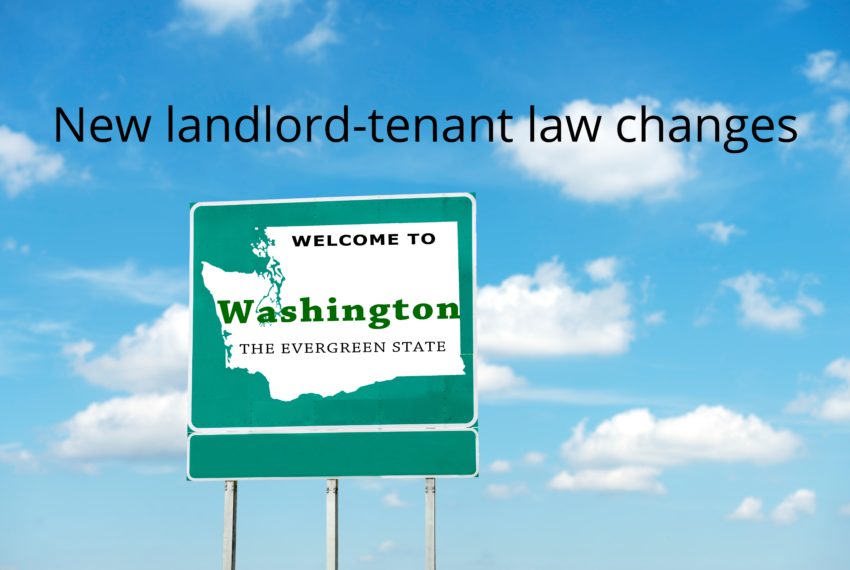New landlord-tenant law changes go in effect on July 28th, 2019. Hear designated broker, Jason Clifford, and Heather Pierce, Deputy Director of Government Affairs for the Rental Housing Association of Washington State discuss some of the upcoming changes that will have the most impact on landlords in Washington State. These changes are statewide changes and so affect every landlord and tenant in the state.
If you have questions regarding these new landlord-tenant law changes or anything property management or real estate related you can reach me on the contact us link or you can also reach me at (253) 826-7559 or jason@sjcmanagement.com
Heather Pierce can be reached at (206) 905-0611 or hpierce@RHAwa.org
Contact UsProperty Management ServicesFree Rental Evaluation
Transcription of the video:
Jason: Hi, I’m Jason and I’m here with Heather of the Rental Housing Association. And upcoming here in July 28, 2019, there are a whole host to changes to the landlord-tenant law that are statewide for Washington. Could you take us through some of the highlights of the stuff coming up?
Heather: Yeah. So yes, so the RLTA will have some substantial changes to it that due take effect on July 28. I think highlights include the 3-day pay or vacate, so specifically for non-payment. So this is the only real notice period changing other than the rent increase, when the notice period for nonpayment is moving from 3 days to 14 days. So you’ll have to give a tenant 14 days’ notice for nonpayment before you can issue. Your, excuse me…
Jason: Before you can begin the eviction process.
Heather: Yes, sorry. I’m thinking of a specific the legal form anyway. Yes, it’s before you can begin an eviction process. In addition to that, as a part of that same bill, there is an option for judicial discretion that a judge can provide a tenant, even if for nonpayment, a landlord can prove that the tenant did not comply and did not pay their rent. They could reinstate tenancy for nonpayment based on a certain number of factors. However, if a tenant is given three nonpayment, three pay or vacate notices within a 12-month period, they are not eligible for judicial discretion.
Jason: Okay.
Heather: So that’s one piece of it. Another key change is the rent increase notification. So statewide currently is outside of certain jurisdictions that have different requirements. It’s 30 days’ notice for rent increase, so that is going to change to a 60-day notice. However, and that’s for month-to-month tenancies, generally speaking. However, fixed term leases that do not move automatically to month-to-month tenancies or have automatic renewals, those are not required to be given 60-day notice for rent increases.
Jason: Yeah. Originally in the proposed legislation, they were going to enforce fixed terms to go month to month, but you guys were successful in removing that?
Heather: That’s correct. We did remove that from the bills that had that in that this go around so.
Jason: Okay. And so judicial discretion is, basically if we go to an eviction court now, the judge has the ability to have more leeway on that eviction than they did before.
Heather: Yes. Essentially, I mean, if you really want to boil it down or distill it, it’s kind of just cause for nonpayment, alright? I mean, it’s pretty complicated, but we did narrow it down just for nonpayment. Originally, they wanted to include behavior, the etiquettes for tenant etiquettes, but we were able to remove behavior issues as being that they wanted to say,” Well, this is a good person, you should be able to let them stay” that we remove that option. So it is just for certain factors and all around on payments. And could they pay? Are they capable of paying? Different issues around that. But like I said, there is a one way around that is, if they are given three pay or vacate within a 12-month period, they are not eligible for that option.
Jason: Okay, okay, good to know. All right. So those are kind of the major ones. Any other big factors that?
Heather: Yeah. Well, if you are an investor that is also a developer, and it is important to know that if you’re purchasing a building that is a deferred maintenance building. Generally speaking, those buildings might have a high number of low-income tenants or tenants paying below market rent that might trigger 120 days’ notice. So any, any actually…
Jason: And that’s a notice to vacate.
Heather: That’s a notice. A 120 days’ notice to vacate [crosstalk] Yes. If you want to vacate
Jason: Is there a unit number associated with that?
Heather: No, no. But what triggers it is the permit.
Jason: Okay.
Heather: So if you’re pulling a permit, and this could be a single-family dwelling, okay.
Jason: Okay. That was my next question.
Heather: Yeah. So if you’re pulling a permit, and you have a tenant that is in the dwelling, then you do need to make sure that you’re giving them a 120 days’ notice.
Jason: Okay, excellent.
Heather: And you cannot rerent that unit if you’re within, if you are pulling that permit within 90 days.
Jason: Okay. So you can’t do it to renovate it to bring higher rents out of it? You just sell it to somebody else.
Heather: Essentially, what they’re trying to do is prevent that from being turned around into. Yes. For the permit process, if you don’t give them 120 days’ notice. If you do get 120 days’ notice you can still rerent it.
Jason: Okay.
Heather: Sorry.
Jason: No problem, I understand. Okay, well, I know that these are really complicated. So if you guys have any questions about the changes of the laws that are coming up, you can contact Heather, the Rental Housing Association, or I’d be able to help you out with any questions that you have property management related. Thanks.
Heather: Yeah. And we do have a class on this, so you’re welcome to check out our website as well, for the class that we have on the new laws as well.
Jason: Yeah. The Rental Housing Association is a great resource for information.
Heather: Okay. Thank you so much.
Jason: All right. Bye.


